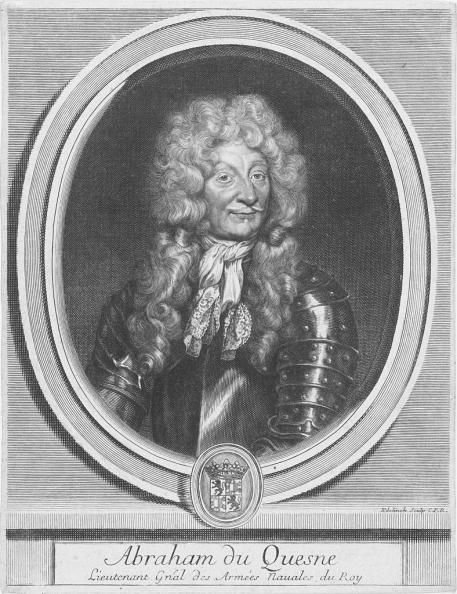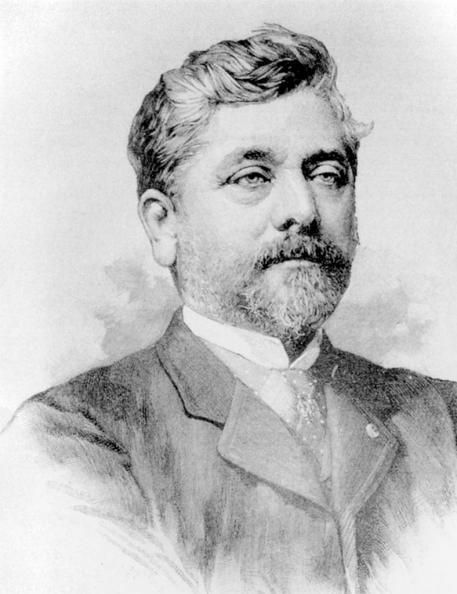Abraham Duquesne
(1604 – 1688)
From an early age, he follows in the footsteps of his father who served in the Royal Navy. This young prodigy joined the Navy for his first campaign on the "Petit Saint André" as lieutenant to 17 years. He became captain and took command of the "Neptune" to 25 years. He will sail the seas until his last campaign in 1684, at the age of 80 years.
By his skills alone, this self-educated commoner rises in the military hierarchy:
Captain of King Louis XIII and Richelieu of vessels, Flanders under Mazarin Wing Head (1647) and Lieutenant General of the naval forces under Louis XIV (1667), and Vice Admiral of Sweden against the Danes.
Its main act of war will remain the Dutch War in 1676.
Duquesne won a brilliant victory against the Dutch Hispano controlled by Ruyter, the greatest Dutch admiral of all time. Ruyter will die in battle.
King Louis XIV to thank him for his loyalty did the "Marquis of Quesne, Baron Indret Monros Lord."
Duquesne was not only a warrior with many collisions to his credit. He is a man of courage, who also was wounded in the jaw by a musket shot. It is above all an excellent navigator and the best specialist in the French shipbuilding.
He laid out the French ports, the arsenal of Brest, and was the founder and organizer of the modern French Navy.
The British considered him the greatest seafarer of the time.
He was the only sailor to have handled the transition between Louis XIII, Richelieu, Mazarin and Louis XIV.
Louis was annoyed by his Protestant faith. He offered him the marshal's baton and Vice Admiral if he abjured but he refused:
"If I had to betray my God, I maybe would come thereafter to betray my King."
Duquesne was finally removed frameworks for Protestantism, but was not pursued and became the only protestant subject of the kingdom to keep its securities.
In 1792 Louis XVI baptize the "Duquesne", a vessel of seventy-four guns. Subsequently, 13 warships will carry the name of this famous sailor.
Duquesne remains famous in naval history for his courage and audacity in battle "At the collision and no quarter." He rose only by the forces of merit and his shots bursts, never deny his faith and convictions.
From a strong character and a rebellious temperament, Colbert found his motto "It's only from me that I will take the law".





